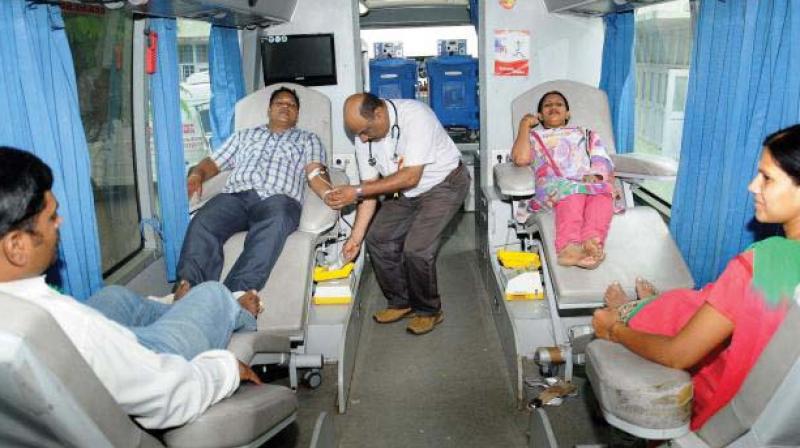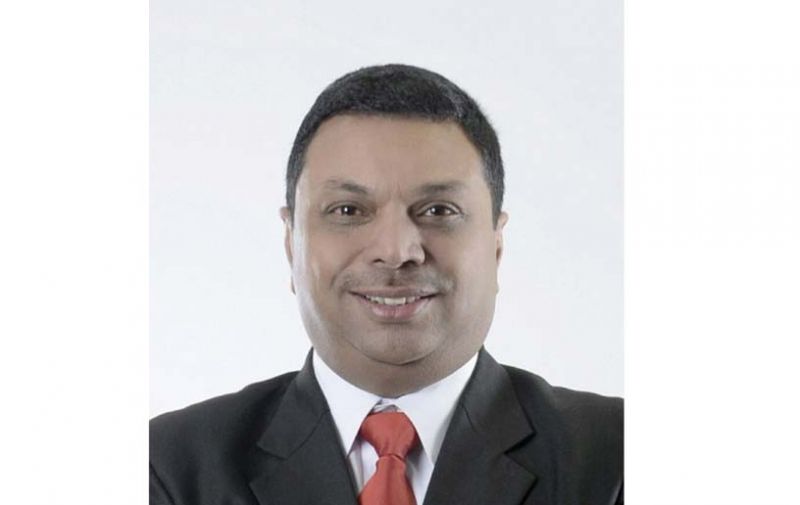ISBT: Saving lives with safe, healthy blood

Bengaluru: For the next of kin of patients requiring blood transfusion, finding a donor is a challenge as in our country, the demand far outstrips supply and the number of voluntary donors is woefully inadequate.
Under such circumstances medical professionals have to be extra vigilant to ensure that the blood used for transfusion is subjected to the necessary safety tests and they also have to update themselves about the latest testing techniques. Patients run the risk of contracting dreaded diseases such as AIDS, if the transfused blood happens to be contaminated.
The International Society of Blood Transfusion (ISBT) is one such organisation that works towards providing information to the medical professionals regarding the latest techniques to improve the safety of blood transfusion worldwide.
The ISBT is currently headed by Ravi Reddy, an Indian-origin South African national, who is also Chief Operations Officer of South African National Blood Service (SANBS). He has worked for the blood transfusion services in South Africa for 30 years.
At a recent visit to the city to attend a seminar on ‘Joint Regional Congress of American Association of Blood Banks (AABB) with India chapter of Asian Association of Transfusion Medicine AATM’, he said his aim was to focus on promoting education, safe and adequate blood supply, blood supply management, cellular therapies, haemo-vigilance and other key aspects of effective blood transfusion.
Reddy said ISBT has been involved with experts, researchers and policy makers in the country and the State to bring about a positive and informed change in the field of blood transfusion.
Regarding the blood safety standards in Karnataka, he said, “Karnataka is leading the way with the introduction of nucleic acid testing (NAT), which ensures that state hospitals have far more safe blood supply than private blood banks.”
However, he said the goal of ISBT in India was to focus on increasing the number of voluntary donors. “In India, the demand outstrips supply especially in specialities of oncology and transplant patients,” he added.
“There should be linking of all the 2,700 blood banks in the State to a regional centre with expertise. The logistics and quality of blood needs to be improved. Once the blood has been collected there should be haemo-vigilance. These are areas should be the main focus for the atate,” Reddy said. As the head of ISBT he recently spoke to the director of medical education to highlight the need for haem-ovigilance and consolidation of information technology systems.
Founded in 1935, ISBT has since grown into an international society where transfusion medicine professionals from across the globe come together to share knowledge to improve the safety of blood transfusion worldwide.
“Every country needs a society or a foundation consisting of professionals, medical technologist, researchers that can meet and share their knowledge,” he said. Our aim is to foster and support global improvements in blood safety and availability, he added.
“Our most important activity is to promote science and education related to blood, cells and transplantation. We have created an educational platform; the ISBT Academy ePortal. This eLearning facility includes webcasts of ISBT congress presentations and a library of transfusion guidelines,” he said.
The Society also advocates the need of information technology for use in transfusion medicine. “IT is a critical part of transfusion medicine and cellular therapy which comprises recruitment, collection, testing, processing, distribution, transfusion/transplantation and quality. IT supports fast and easy access to process data generated in the blood supply chain, including manufacturing, labelling and inventory, facilitating and improving compliance with good manufacturing practice,” Reddy said.


